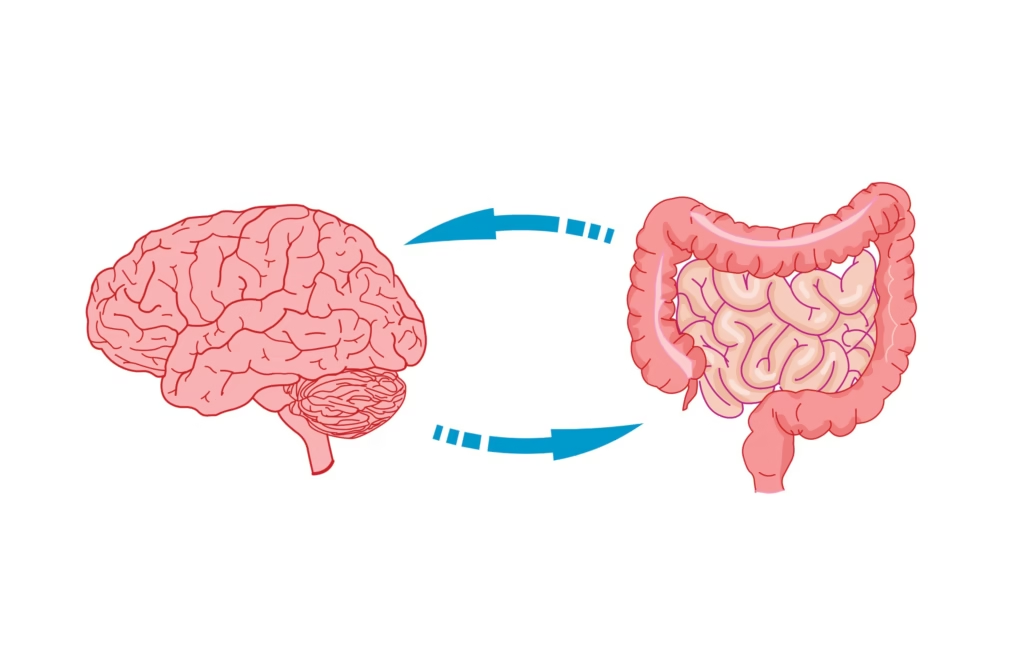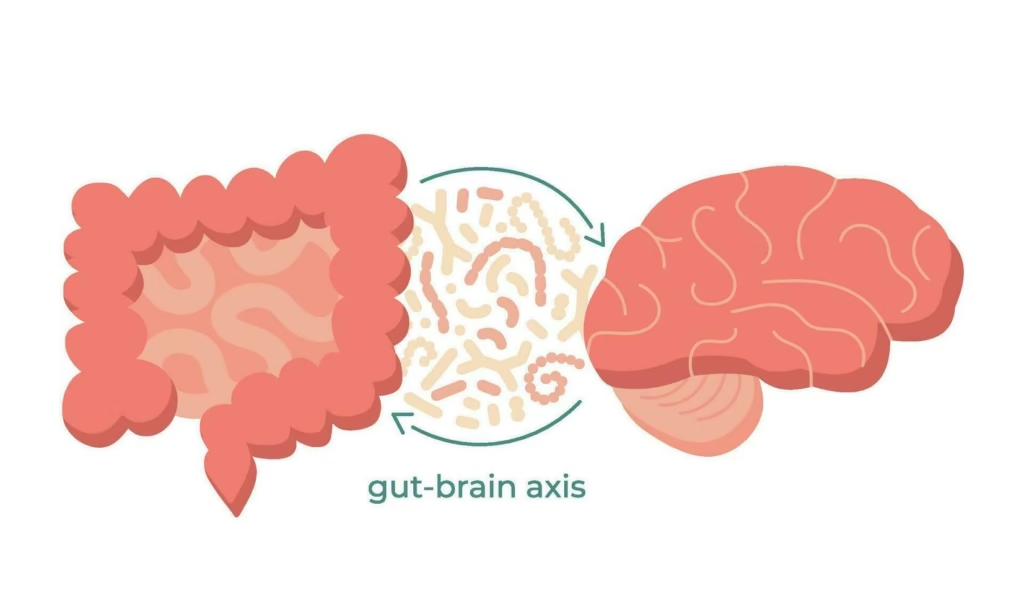
Understanding the Gut-Brain Axis in Holistic Practice
As holistic health practitioners, we know that mental health is not just in the mind—it’s deeply rooted in the body. One of the most powerful and clinically relevant connections is between the gut and the brain, often referred to as the gut-brain axis.
This bidirectional communication system between the central nervous system (CNS) and the enteric nervous system (ENS) is modulated by the gut microbiome—a complex ecosystem of bacteria, fungi, and other microorganisms living primarily in the colon.
Research now confirms what holistic modalities have long suspected: gut health is a foundational pillar of emotional and mental well-being.
The Microbiome’s Role in Mood and Mental Clarity
The gut is often called the “second brain” for good reason. It produces and regulates many of the same neurotransmitters that the brain does, including:
- Serotonin (about 90% is produced in the gut)
- Dopamine
- Gamma-aminobutyric acid (GABA)
- Acetylcholine
When the microbiome is imbalanced—due to stress, poor diet, antibiotic overuse, or inflammation—it can disrupt this neurochemical harmony, contributing to symptoms like:
- Anxiety and panic
- Brain fog and low concentration
- Depression and low mood
- Irritability or emotional instability
- Sleep disturbances
- Fatigue and low energy
How the Gut and Brain Communicate
The gut-brain axis involves several communication pathways:
- Vagus nerve: A major player in transmitting information from gut to brain
- Neurotransmitters: Produced by gut microbes, influencing brain chemistry
- Immune signaling: Inflammatory cytokines can travel to the brain and affect mood
- Short-chain fatty acids (SCFAs): Byproducts of fiber fermentation that support brain health
This complex system means that supporting gut health can be a powerful therapeutic approach for mental clarity, emotional balance, and stress resilience.
Signs of a Gut-Brain Imbalance
Clients may present with a mix of digestive and psychological symptoms, including:
- Bloating, gas, or IBS
- Chronic constipation or diarrhea
- Food sensitivities or leaky gut
- Anxiety, mood swings, or low motivation
- Poor stress tolerance or burnout
- Sugar cravings or dysregulated appetite
As practitioners, we must consider gut health as a root contributor when addressing mental or emotional symptoms.

Holistic Tools to Support the Gut-Brain Axis
1. Probiotic-Rich Foods and Supplementation
Why it matters: Beneficial bacteria like Lactobacillus and Bifidobacterium have been shown to reduce anxiety and improve mood.
Recommend: fermented foods (sauerkraut, kefir, miso) and targeted probiotic strains based on client symptoms.
2. Prebiotics and Fiber
Why it matters: Prebiotics like inulin and resistant starch feed beneficial microbes, promoting SCFA production.
Include: garlic, onions, leeks, green bananas, Jerusalem artichokes, flaxseeds.
3. Reduce Gut Inflammation
Why it matters: Chronic inflammation can damage the gut lining and increase neuroinflammation.
Tools: Anti-inflammatory diets, glutamine, omega-3s, turmeric, bone broth, and eliminating food triggers.
4. Nervous System Regulation
Why it matters: Chronic stress disrupts the gut microbiome and digestion through cortisol and vagus nerve dysregulation.
Integrate: breathwork, meditation, yoga, or somatic practices to restore vagal tone and gut motility.
5. Mindful Eating
Why it matters: Eating in a parasympathetic state improves digestion, absorption, and microbial balance.
Tip: Encourage clients to slow down, chew thoroughly, and eat without screens or multitasking.
6. Addressing Underlying Infections or Dysbiosis
Why it matters: Conditions like Candida overgrowth, SIBO, or H. pylori can disrupt mental and digestive health.
Use GI mapping or stool testing to customize antimicrobial or rebalancing protocols.
Integrating Gut-Brain Healing into Your Practice
As a holistic practitioner, you can:
- Use symptom mapping to connect mood issues with gut dysfunction
- Educate clients on the gut-brain axis in accessible terms
- Collaborate with functional nutritionists or naturopaths when needed
- Incorporate herbal remedies (e.g., licorice root, ginger, berberine) to soothe and balance the gut
- Track mental health shifts alongside gut healing progress
The Future of Mental Health Is Gut-Driven
The emerging science of the gut-brain axis reinforces what holistic traditions have long known: healing the gut is key to healing the mind.
By supporting your clients’ microbiome health, you help them reclaim emotional balance, sharpen their mental clarity, and build resilience from the inside out.
